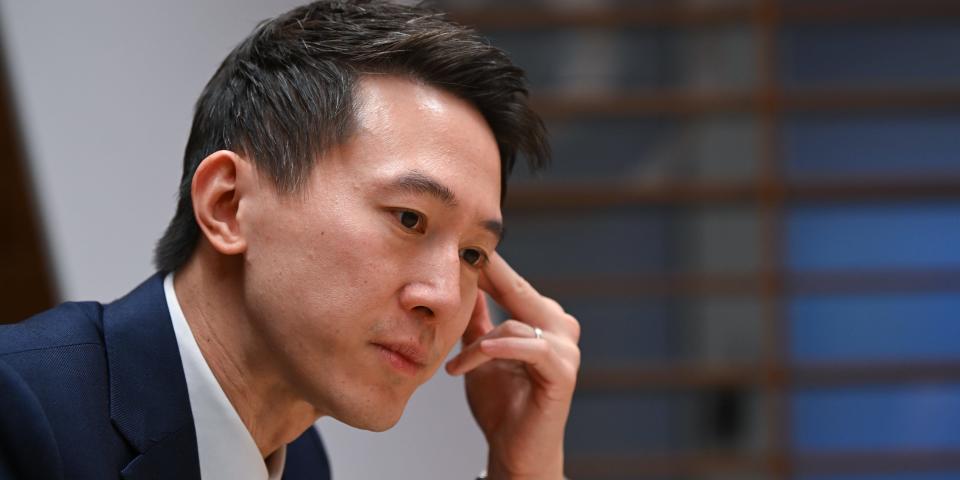TikTok parent ByteDance has special stock owned by China's government. Here's how 'golden shares' give Beijing influence over the social-media giant.

In 2021, China's government bought a 1% stake in the main domestic unit of TikTok owner ByteDance.
The ownership stake came up in a recent congressional hearing as US lawmakers weigh a TikTok ban.
Here's what so-called golden shares are and how Beijing can use them.
During last week's congressional hearing into security concerns tied to TikTok, a lawmaker asked if the Chinese Communist Party owned a "golden share" in parent company ByteDance that gives it control over a board seat.
TikTok CEO Shou Zi Chew said that wasn't correct and that the Communist Party has no voting rights in ByteDance. But the details are more complicated.
In 2021, a fund backed by the Cyberspace Administration of China, a government regulator and censor, along with two other state entities bought a 1% stake in ByteDance's main Chinese subsidiary for 2 million yuan, obtaining the right to name one of three directors to the unit's board.
Communist Party official Wu Shugang was appointed to the board, according to the Financial Times. An official at CAC as well, he once posted on social media "Let the Chinese traitors preaching so-called 'human rights and freedom' go to hell!!" the FT said.
As US lawmakers debate a TikTok ban, here's what golden shares are and how China's government can use them.
What are golden shares?
Officially known as "special management shares," these stocks cropped up in 2013 as a way for the government to loosen control over the business sector without giving it full autonomy, according to the Wall Street Journal.
The stakes are often 1%, but despite their minuscule size, they can still provide a seat on the board and influence over business decisions.
The government uses golden shares in place of more explicit measures to keep its tech sector in check. And in January, the CAC purchased golden shares in an Alibaba subsidiary to exert more control over content at streaming video unit Youku and web browser UCWeb, the FT said.
How can China's government influence ByteDance?
In addition to TikTok, ByteDance owns a number of companies, including the news aggregator Toutiao and TikTok's sister app Douyin, which is used in China.
The ByteDance unit that sold golden shares to China's government holds the licenses of Toutiao and Douyin to operate under local law. The unit's charter shows that Wu, the government's board appointee, has a say over "business strategy and investment plans," any merger deals, how to allocate profit, and a vote on the top three executives plus their compensation, according to the FT.
Wu also has the power to control content at Toutiao and Douyin, the ability to appoint and dismiss the unit's top censor, and the right to lead a "content safety committee" or name its chair, the FT added.
What does this mean for TikTok?
For its part, TikTok has maintained that it is separate from ByteDance. And ByteDance told Insider the domestic unit that sold the golden shares "has no ownership, visibility, or input into ByteDance's global operations."
But according to the Wall Street Journal, the government's purchase of the golden shares was partly intended to give Beijing a say in what happens to TikTok's algorithm, which recommends videos to users, namely in preventing its sale or transfer.
Meanwhile, last week's hearing did little to ease lawmakers' fears that TikTok is a potential security threat, and ByteDance faces investigations from the FBI and Justice Department over claims it surveilled journalists who used TikTok.
The political sentiment is so skewed against TikTok that Wedbush's Dan Ives sees a 90% chance it will be banned in the US, unless it goes through with an IPO or gets bought out by mega-cap tech giant.
Read the original article on Business Insider

 Yahoo Finance
Yahoo Finance 